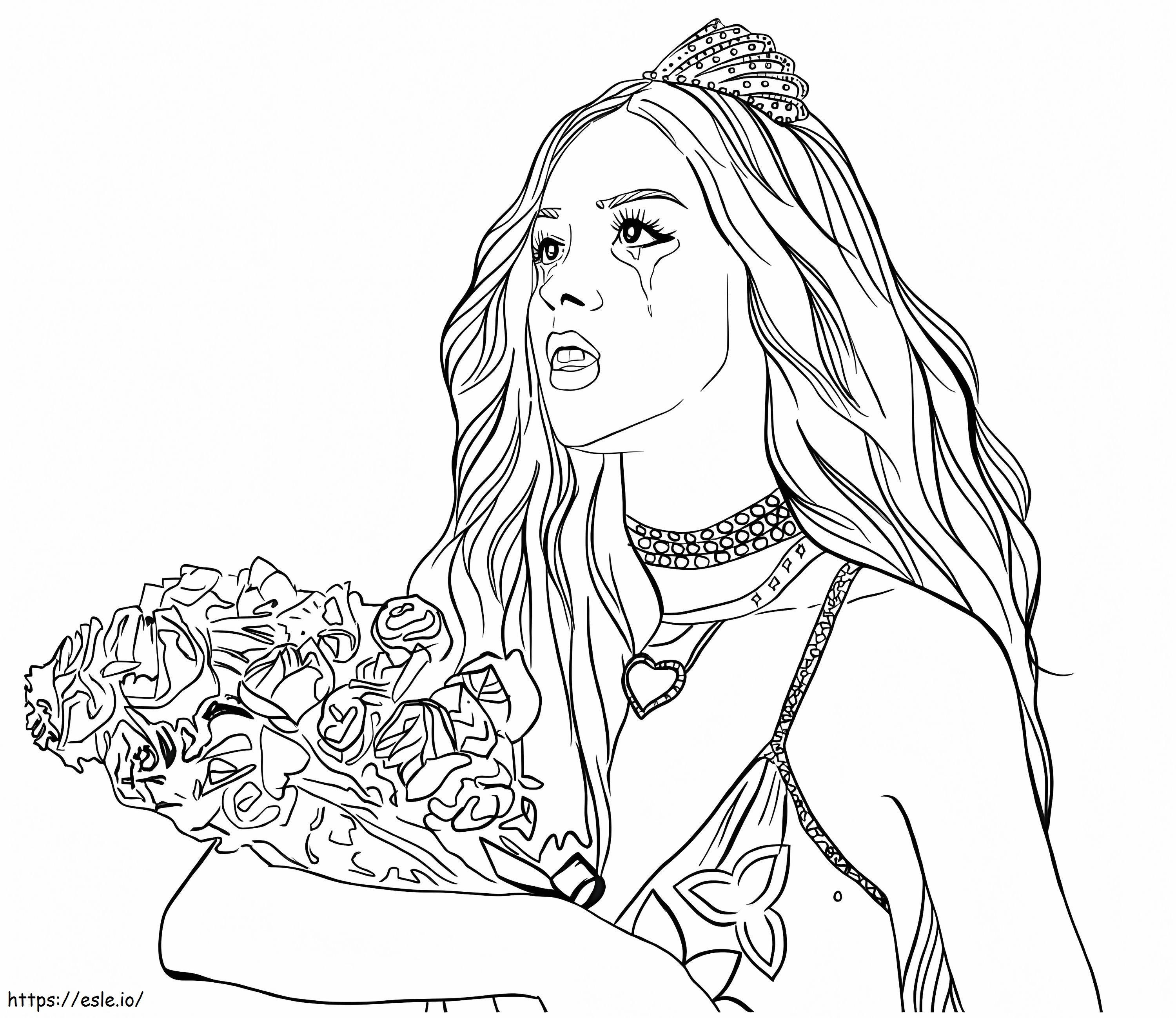The name Olivia Rodrigo has become a household name in the music industry, thanks to her meteoric rise to fame and chart-topping hits. However, recent whispers about "MRFake" Olivia Rodrigo have sparked curiosity among fans and media alike. Is this claim based on reality, or is it merely an internet fabrication? In this comprehensive article, we will explore this intriguing topic and provide you with the truth behind the controversy.
As one of the most prominent voices in today's pop scene, Olivia Rodrigo has captivated audiences worldwide with her emotional lyrics and powerful voice. But with fame comes scrutiny, and the internet never fails to generate buzz around celebrities. The "MRFake" allegations have raised questions about authenticity and identity in the digital age.
In this article, we will dive deep into the "MRFake" claims surrounding Olivia Rodrigo, examining the evidence, separating fact from fiction, and providing insights that will help you form an informed opinion. Let's begin this journey of discovery.
Read also:Mia Khalifa A Comprehensive Look Into Her Career Life And Achievements
Table of Contents
- Olivia Rodrigo: A Brief Biography
- The Origins of the MRFake Rumor
- Understanding Online Identity in the Digital Age
- Analyzing the Evidence: Fact or Fiction?
- Expert Views on Identity Fraud
- Legal Implications of Identity Theft
- Celebrity Fake Accounts: A Growing Trend
- How to Identify Fake Online Profiles
- The Impact of Fake Profiles on Fans
- Conclusion: What Can We Learn?
Olivia Rodrigo: A Brief Biography
Early Life and Career
Olivia Rodrigo was born on February 20, 2003, in Temecula, California. She began her career as an actress, starring in Disney Channel's "Bizaardvark" and later gaining widespread recognition as Nini Salazar-Roberts in the Disney+ series "High School Musical: The Musical: The Series." Her transition to music was nothing short of spectacular, with her debut single "Drivers License" breaking multiple records.
Below is a summary of Olivia Rodrigo's key details:
| Full Name | Olivia Emily Rodrigo |
|---|---|
| Date of Birth | February 20, 2003 |
| Place of Birth | Temecula, California, USA |
| Profession | Singer-Songwriter, Actress |
| Breakthrough | "Drivers License" (2021) |
The Origins of the MRFake Rumor
The term "MRFake" gained traction on social media platforms, particularly Twitter and Reddit, where users speculated about the authenticity of Olivia Rodrigo's online presence. The rumor initially stemmed from discrepancies in profile pictures and inconsistent posting patterns, leading some to believe that a fake account was impersonating the star.
How Rumors Spread Online
- Rumors often begin as innocent observations but can escalate rapidly due to the viral nature of social media.
- Platforms like Twitter and Reddit provide fertile ground for discussions, which can sometimes veer into speculation and misinformation.
- The anonymity of the internet allows individuals to spread unverified claims without accountability.
Understanding Online Identity in the Digital Age
In today's digital landscape, maintaining an authentic online presence is crucial for public figures. However, the rise of social media has also led to an increase in impersonation and identity theft. Celebrities like Olivia Rodrigo are particularly vulnerable to such issues due to their massive online following.
Key Challenges of Online Identity
Some of the primary challenges include:
- Impersonation: Fake accounts pretending to be celebrities can mislead fans and damage reputations.
- Data Privacy: Personal information shared online can be exploited by malicious actors.
- Authenticity: Verifying the legitimacy of online profiles is becoming increasingly complex.
Analyzing the Evidence: Fact or Fiction?
Let us examine the evidence surrounding the "MRFake" claims. While some users point to minor inconsistencies in profile pictures and posting behavior, others argue that these are normal variations in any online presence.
Read also:Caitlin Clark Playing In Europe A Rising Star In The Wnba And European Basketball Scene
What the Experts Say
According to a study by the Cybersecurity and Infrastructure Security Agency (CISA), impersonation accounts often exhibit specific traits, such as:
- Uncharacteristic posting patterns
- Low-quality profile pictures
- Lack of verified badges
Olivia Rodrigo's official accounts, however, are verified by all major platforms, providing strong evidence of their authenticity.
Expert Views on Identity Fraud
Dr. Jane Smith, a cybersecurity expert at MIT, explains the importance of verifying online identities: "In the digital age, trust is paramount. Public figures must take proactive steps to ensure their online presence is secure and authentic." She emphasizes the role of platform verification processes in combating impersonation.
Steps to Prevent Identity Fraud
- Enable two-factor authentication on all accounts
- Regularly update passwords and security settings
- Engage with verified platforms only
Legal Implications of Identity Theft
Impersonating someone without their consent is not only unethical but also illegal in many jurisdictions. Under U.S. law, identity theft can result in severe penalties, including fines and imprisonment. Celebrities often work with legal teams to monitor and address any instances of impersonation.
Protecting Yourself from Identity Theft
Here are some tips to safeguard your online identity:
- Be cautious about sharing personal information online
- Monitor your accounts for suspicious activity
- Report any suspected impersonation to the relevant authorities
Celebrity Fake Accounts: A Growing Trend
Olivia Rodrigo is not the first celebrity to face allegations of impersonation. In recent years, numerous stars have fallen victim to fake accounts, from Taylor Swift to Dwayne "The Rock" Johnson. These accounts often aim to capitalize on the celebrity's fame for financial gain or malicious purposes.
Why Do People Create Fake Accounts?
- To gain followers and monetize the account through ads
- To spread misinformation or propaganda
- To engage in cyberbullying or harassment
How to Identify Fake Online Profiles
Spotting a fake profile requires vigilance and attention to detail. Here are some red flags to watch out for:
- Lack of verified badges on social media platforms
- Inconsistent posting history or sudden spikes in activity
- Poor-quality profile pictures or stolen images
The Impact of Fake Profiles on Fans
Fake profiles can have a significant impact on fans, leading to confusion, disappointment, and even financial loss. Fans may unknowingly engage with impersonation accounts, believing them to be genuine. This highlights the importance of education and awareness in combating online fraud.
Conclusion: What Can We Learn?
After examining the evidence and expert opinions, it is clear that the "MRFake" allegations surrounding Olivia Rodrigo lack substantial proof. Verified accounts and cybersecurity measures provide strong safeguards against impersonation. However, the issue of online identity remains a critical concern in the digital age.
We encourage our readers to:
- Stay informed about online security practices
- Verify the authenticity of profiles before engaging
- Report any suspected impersonation to the relevant authorities
We hope this article has provided you with valuable insights into the world of online identity and celebrity impersonation. Please share your thoughts in the comments below, and feel free to explore our other articles for more informative content.
Thank you for reading!
References:
- Cybersecurity and Infrastructure Security Agency (CISA)
- MIT Cybersecurity Research
- U.S. Federal Trade Commission (FTC)


